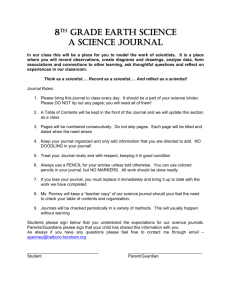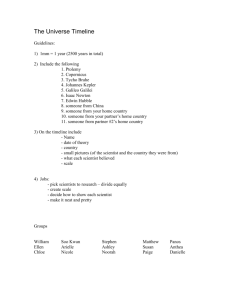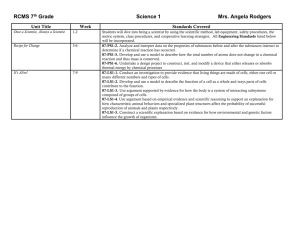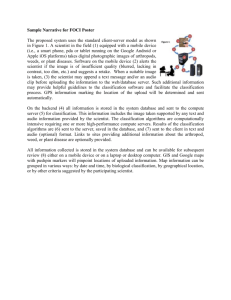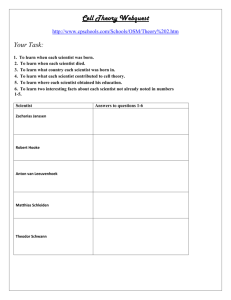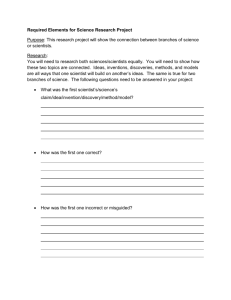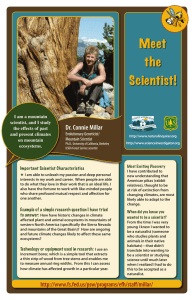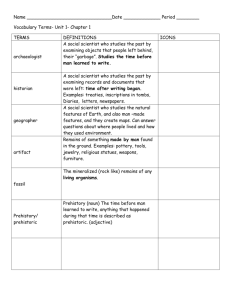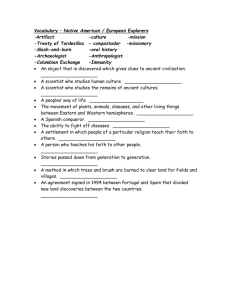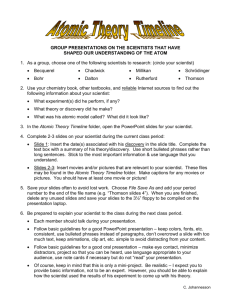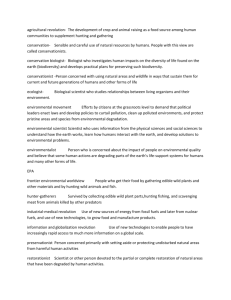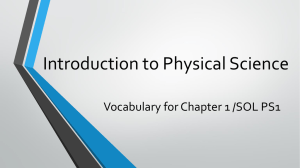Section 1 - kjpederson
advertisement
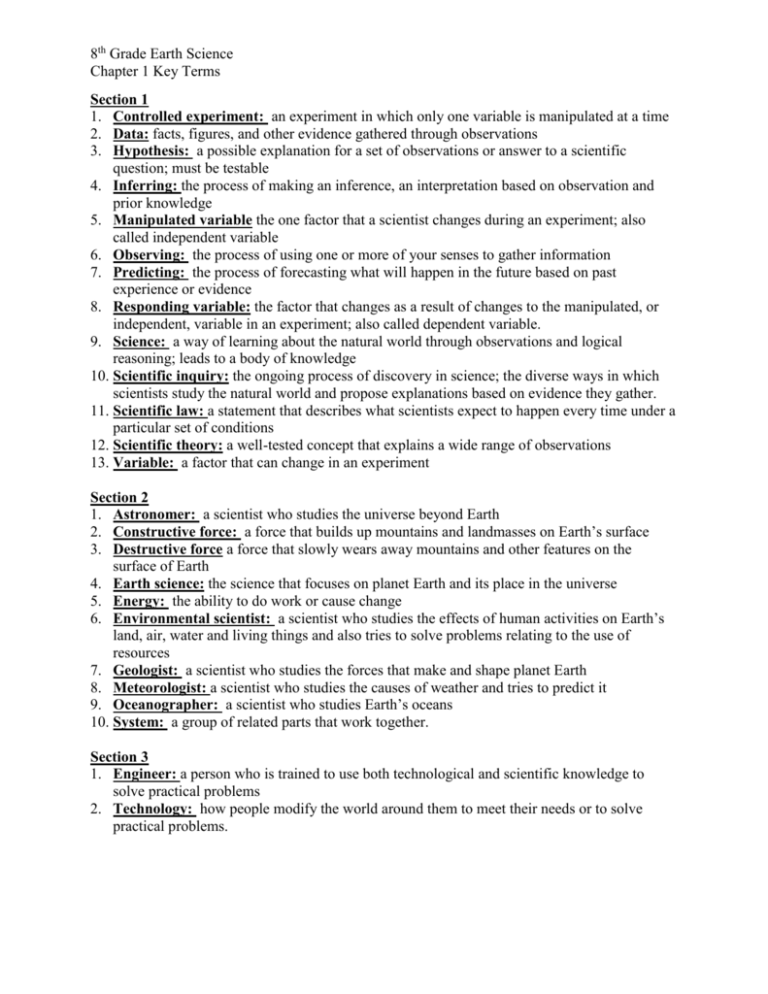
8th Grade Earth Science Chapter 1 Key Terms Section 1 1. Controlled experiment: an experiment in which only one variable is manipulated at a time 2. Data: facts, figures, and other evidence gathered through observations 3. Hypothesis: a possible explanation for a set of observations or answer to a scientific question; must be testable 4. Inferring: the process of making an inference, an interpretation based on observation and prior knowledge 5. Manipulated variable the one factor that a scientist changes during an experiment; also called independent variable 6. Observing: the process of using one or more of your senses to gather information 7. Predicting: the process of forecasting what will happen in the future based on past experience or evidence 8. Responding variable: the factor that changes as a result of changes to the manipulated, or independent, variable in an experiment; also called dependent variable. 9. Science: a way of learning about the natural world through observations and logical reasoning; leads to a body of knowledge 10. Scientific inquiry: the ongoing process of discovery in science; the diverse ways in which scientists study the natural world and propose explanations based on evidence they gather. 11. Scientific law: a statement that describes what scientists expect to happen every time under a particular set of conditions 12. Scientific theory: a well-tested concept that explains a wide range of observations 13. Variable: a factor that can change in an experiment Section 2 1. Astronomer: a scientist who studies the universe beyond Earth 2. Constructive force: a force that builds up mountains and landmasses on Earth’s surface 3. Destructive force a force that slowly wears away mountains and other features on the surface of Earth 4. Earth science: the science that focuses on planet Earth and its place in the universe 5. Energy: the ability to do work or cause change 6. Environmental scientist: a scientist who studies the effects of human activities on Earth’s land, air, water and living things and also tries to solve problems relating to the use of resources 7. Geologist: a scientist who studies the forces that make and shape planet Earth 8. Meteorologist: a scientist who studies the causes of weather and tries to predict it 9. Oceanographer: a scientist who studies Earth’s oceans 10. System: a group of related parts that work together. Section 3 1. Engineer: a person who is trained to use both technological and scientific knowledge to solve practical problems 2. Technology: how people modify the world around them to meet their needs or to solve practical problems.
